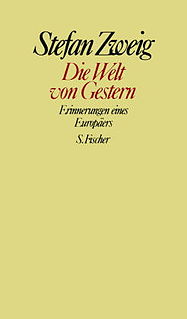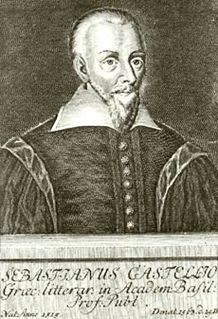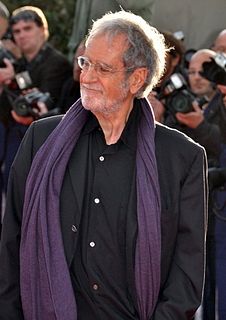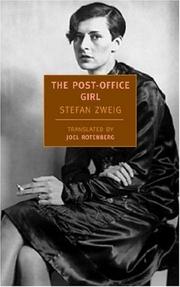
Stefan Zweig was an Austrian novelist, playwright, journalist and biographer. At the height of his literary career, in the 1920s and 1930s, he was one of the most widely translated and most popular writers in the world.

Émile Adolphe Gustave Verhaeren was a Belgian poet and art critic who wrote in the French language. He was one of the founders of the school of Symbolism and was nominated for the Nobel Prize in Literature on six occasions.
This article contains information about the literary events and publications of 1942.

Arnold Zweig was a German writer, pacifist and socialist. He is best known for his six-part cycle on World War I.

Romain Rolland was a French dramatist, novelist, essayist, art historian and mystic who was awarded the Nobel Prize for Literature in 1915 "as a tribute to the lofty idealism of his literary production and to the sympathy and love of truth with which he has described different types of human beings".

The World of Yesterday: Memories of a European is the memoir of Austrian writer Stefan Zweig. It has been called the most famous book on the Habsburg Empire. He started writing it in 1934 when, anticipating Anschluss and Nazi persecution, he uprooted himself from Austria to England and later to Brazil. He posted the manuscript, typed by his second wife Lotte Altmann, to the publisher the day before they both committed suicide in February 1942. The book was first published in Stockholm (1942), as Die Welt von Gestern. It was first published in English in April 1943 by Viking Press. In 2011, Plunkett Lake Press reissued it in eBook form. In 2013, the University of Nebraska Press published a translation by the noted British translator Anthea Bell.

Sebastian Castellio was a French preacher and theologian; and one of the first Reformed Christian proponents of religious toleration, freedom of conscience and thought.

Eric-Emmanuel Schmitt is a Franco–Belgian playwright, short story writer and novelist, as well as a film director. His plays have been staged in over fifty countries all over the world.

Édouard Molinaro was a French film director and screenwriter.

Jean-Christophe (1904‒1912) is the novel in 10 volumes by Romain Rolland for which he received the Prix Femina in 1905 and the Nobel Prize for Literature in 1915. It was translated into English by Gilbert Cannan.
Cedar Paul, néeGertrude Mary Davenport was a singer, author, translator and journalist.

Only Yesterday is a 1933 American pre-Code drama film about a young woman who becomes pregnant by her boyfriend before he rushes off to fight in World War I. It stars Margaret Sullavan and John Boles.
The German League for Human Rights was founded on 16 November 1914 as the pacifist group Bund Neues Vaterland. Among its members: Albert Einstein., Friedrich Simon Archenhold, Walther Borgius, Elsbeth Bruck, Minna Cauer, Hans Delbrück, Albert Einstein, Kurt Eisner, Friedrich Wilhelm Foerster, Alfred Hermann Fried, Alexander Futran, Hellmut von Gerlach, Rudolf Goldscheid, Paul Guttfeld, Arthur Holitscher, Harry Graf Kessler, Gustav Landauer, Otto Lehmann-Rußbüldt, Ernst Meyer, Georg Friedrich Nicolai, Paul Oestreich, Hans Paasche, Ludwig Quidde, Heinrich Rausch von Traubenberg, Ernst Reuter, Helene Stöcker, Leopold von Wiese, Clara Zetkin and Stefan Zweig.

Stefan Jerzy Zweig is an author and cameraman. He is known as the Buchenwald child from the novel by Bruno Apitz, Naked Among Wolves. He survived the Buchenwald concentration camp at age four under protection from his father and other prisoners.

The Post Office Girl is a novel by the Austrian writer Stefan Zweig. It tells the story of Christine Hoflehner, a female post-office clerk in a small town near Vienna, Austria-Hungary, during the poverty-stricken years following World War I. The book was published posthumously in 1982.

Confusion, also known in English under the titles Confusion of Feelings or Episode in the Early Life of Privy Councillor D. is a 1927 novella by the Austrian writer Stefan Zweig. It tells the story of a student and his friendship with a professor. It was originally published in the omnibus volume Conflicts: Three Tales, together with two other Zweig novellas, Twenty-Four Hours in the Life of a Woman and Untergang eines Herzens. It was included on Le Monde's 100 Books of the Century list.
Fortunat Joseph Strowski de Robkowa was a French literary historian, essayist and critic. A specialist on Pascal and Montaigne, he superintended the first critical edition of Montaigne's Essays.
Carl Seelig was a German-Swiss writer and patron. He was best known as a friend, promoter and guardian of Robert Walser and the first biographer of Albert Einstein.
Isabelle Hausser is a French novelist and translator.

Benjamín Jarnés Y Millán (1888-1949) was a Spanish writer. Having been a soldier for a decade, he quit the army in 1920 and published his first novel in 1924. His second novel El profesor inútil (1926) met with success and was followed by books such as El convidado de papel (1928) and Teoría del zumbel (1930). He fought on the Republican side during the Spanish Civil War, and after General Franco's victory, he fled to Mexico. He turned his attention to writing biographies of writers such as Stefan Zweig and Miguel de Cervantes. In 1948 he returned to Spain, the year before his death in Madrid.














